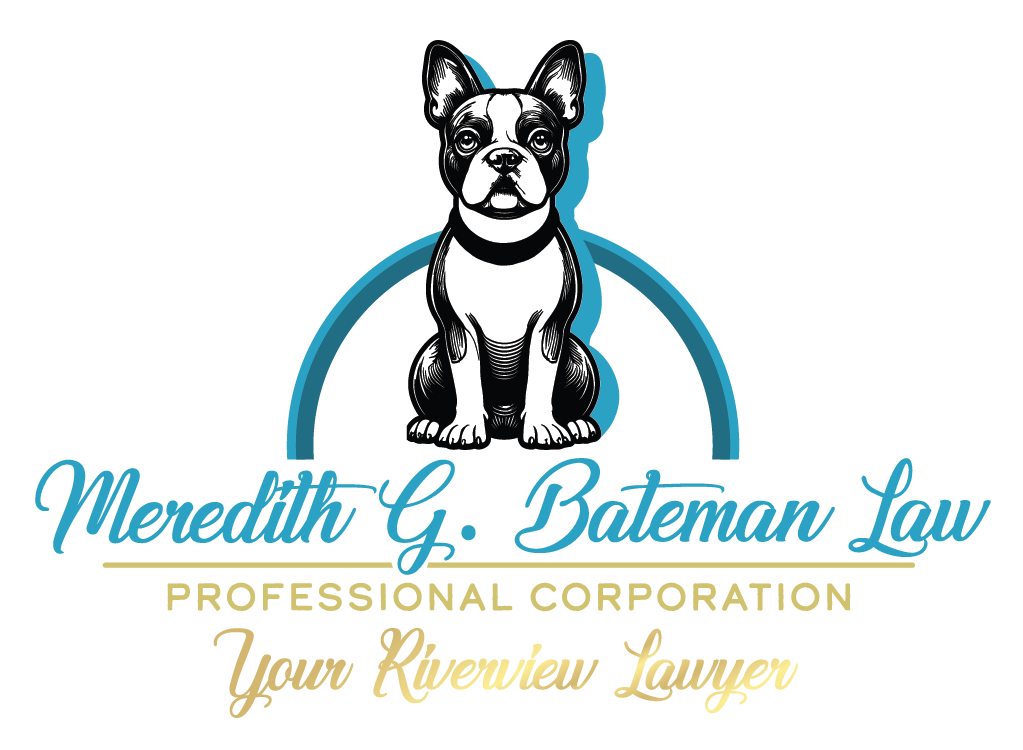Wills & Estates
Frequently Asked Questions about Wills and Power of Attorney
We have received several questions from our clients regarding Wills and Powers of Attorney. We have done our best to answer those questions on this page.
If you require more information, please give us a call.

Frequently Asked Questions
-
Why Do I Need a Will?
After a person’s death, many issues have to be dealt with, including burial and or memorial services and making decisions about your personal belongings. Financial issues may include ensuring the income taxes for your estate are completed, dealing with your debts, closing your bank accounts and dealing with any property, insurance or investments that may exist. Finally, if there are children under 19 or older children that may be dependent because of post-secondary education attendance or mental or physical health issues, their well-being must be looked after. In the Province of New Brunswick, when a person dies without a will, his or her estate must be distributed in accordance with the Devolution of Estates Act. Under this act, your estate is distributed in a way that you may not have intended or wanted.
If you die without a will, then it will potentially cost your family unexpected legal fees, time and aggravation to sort out your affairs. If you have not spoken to close family members about your wishes, it may cause heartache and arguments between them in having to deal with these issues without any idea what it is you would have preferred.
-
Do I Need a Lawyer to Prepare My Will?
You do not need a lawyer to prepare a will, but if you prepare it yourself there may be problems later on after you die.
Writing your own will, even with a purchased kit, is likely only to benefit the lawyers arguing over its interpretation after your death. By having a lawyer prepare your will you can make sure that it is properly prepared and less likely to be heavily contested following your death.
-
How Much Does It Cost for a Lawyer to Prepare My Will?
The usual fee at Meredith Bateman Law for a simple will for one person is $450.00 (plus HST). For a couple with mirror wills, the fee is $675.00 (plus HST).
-
How Much Time Does It Take to Prepare a Will?
Usually we meet with you twice - first to take your instructions and then a second meeting 1 to 3 weeks later to sign the documentation.
-
How Do I Get Ready?
We will help you fit your personal situation into a Will that is logical and easy to understand and tailored to your circumstances.
At the first meeting we will review several matters with you, including:
- What do you own? (houses, cottage, bank accounts, pensions, investments, etc.).
- Who are you beneficiaries? (a spouse, children, nieces and nephews, but there are multiple choices and variations depending on your specific circumstances which we will discuss with you.)
- Who will administer your estate? / Who will be your executor? (this could include a spouse, an adult child, or another family member or long-time friend) We will usually discuss with you the fact that you need at least one Pages
- executor and at least one alternate in case that individual cannot or will not act as your executor or dies before you.
- Who will look after your children?
- How will your children be provided for?
- Are your children adults and independent or minor children? The circumstances of each changes how you need to address these issues.
-
Who Is an Executor (or Executrix)?
The executor is the person who administers or supervises your estate, pays your bills and ensures things are dealt with as you have set out in your will, sometimes including the distribution of money over time to people who were not yet adults at the time of your death. It should be someone you trust, such as a family member or close friend, and someone who agrees to take on this responsibility.
-
What Is a Power of Attorney?
By signing a Power of Attorney, you authorize someone else to act as your agent either for your convenience or in the case of your absence or disability. Your Attorney is the person that you choose to handle your affairs.
The person that you appoint as your Power of Attorney fills that role only for so long that you are legally living. The Power of Attorney and the authorizations that you give to that individual die when you die and at that point your Will becomes the legal binding document that governs what happens with your Estate and consequently the Executor becomes the person who can give instructions as to your funeral and wishes following your death and how things will be addressed or dealt with.
The most common Power of Attorney we draft covers both financial and medical decisions. You can have the same people appointed to look after your finances and to make medical decisions for you or you can have entirely different people to cover each of those roles. As with Executors, we will ask you to name, wherever possible, at least one person and a back up for each of these provisions. There may be occasions where you simply do not have anyone who can act as a backup and we will discuss that at the appointment if this is the case.
-
Why Is a Power of Attorney Important?
Without a power of attorney, it is not clear who should make decisions about your health or your property if you become incapacitated or unavailable, such as being in a coma in the hospital or out of the country for a length of time. If you become unable to manage your own affairs as a result of an accident or illness and do not have a power of attorney, your family will have the added expense of making a lengthy and expensive application to the court in order to have a committee named to manage your affairs.
The court will then name someone to manage your affairs, though this will not necessarily be the person you would have chosen and the expense of having to obtain order will cause unnecessary stress to your family, fights you would not want to have happened and huge legal expenses, even if everyone agrees.
-
Who Prepares a Power of Attorney?
Your lawyer prepares a power of attorney. We strongly recommend that you have a lawyer draft such important documents and not rely on a prepackaged kit for sale or free that you may find online or at an office supply store. While you may think you will save a few doillars in doing so, this will not be the case.
Under the current legislation recently passed in New Brunswick your Power of Attorney must be notarized. In the Province of New Brunswick, Lawyers are Notary Publics.
Keep in mind that every Province in Canada has its own legislation dealing with Wills and Powers of Attorney. These laws differ in each province. Using an online Power of Attorney that you find by doing a google search or copying a Power of Attorney that a relative of yours may have had done either in another Province or with their lawyer in this Province is simply not a good idea. While these are very important documents that everyone should have. These are very important documents that everyone should have. These documents will impact you and your family directly and as a result, they need to be properly drafted to ensure that they do what you intend.
-
How Much Does It Cost for a Power of Attorney?
Meredith Bateman Law office charges $450.00 (plus HST) for an individual power of attorney. If you do your will and power of attorney at the same time, your total cost would be $825.00 plus HST for both documents. If you and your spouse decide to each do your wills and each do a power of attorney, your total cost would be $1500.00 plus HST.
-
What is the difference between Probate and Letters of Administration?
Probating of an Estate is what you do when you have a Will in place after a person has died and you need to file for a Court Order to confirm the terms of the Will, confirm that it is the Last Will and Testament and have the executors taking responsibility appointed confirmed by the court by Court Order that they can act on behalf of the Estate.
Letters of Administration are documents that you file with the court asking that you be appointed as the representative of an Estate that does not have a valid Will in place, usually meaning the person died intestate.
Both Letters of Administration and Letters Probate incur court fees and legal costs in order to do so and they are based on a sliding scale dependent on the value of the Estate

